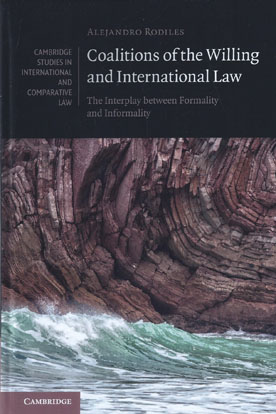
Global action and regulation is increasingly the result of the interplay between formality and informality. From the management of State conduct in international security to the coordination of national policies in climate change, international organizations work ever closer with coalitions of the willing.
This book carefully describes this dynamic game, showing that it consists of transformative orchestration strategies and quasi-formalization processes. On the institutional plane, coalitions of the willing turn into 'durable efforts', while international organizations perform as 'platforms' within broader regime complexes.
On the normative level, informal standards are framed in legal language and bestowed with the force of law, while legal norms are attached to multi-layered schemes of implementation, characterized by pragmatic correspondences, persuasion tactics, and conceptual framing.
Understanding how this interplay alters the notion of 'international legality' is crucial for the necessary recalibrations of the political ideals that will inform the rule of law in global governance.